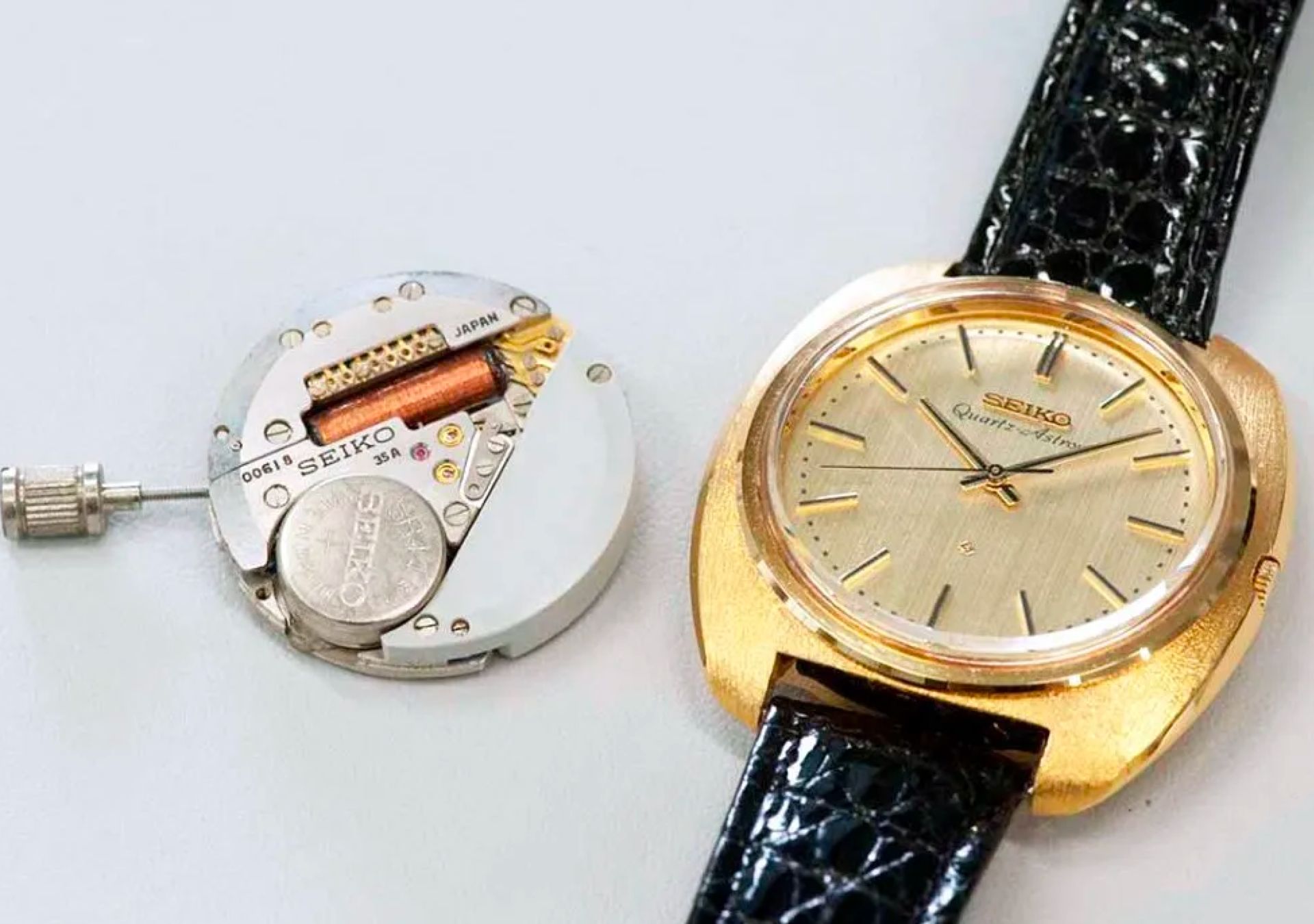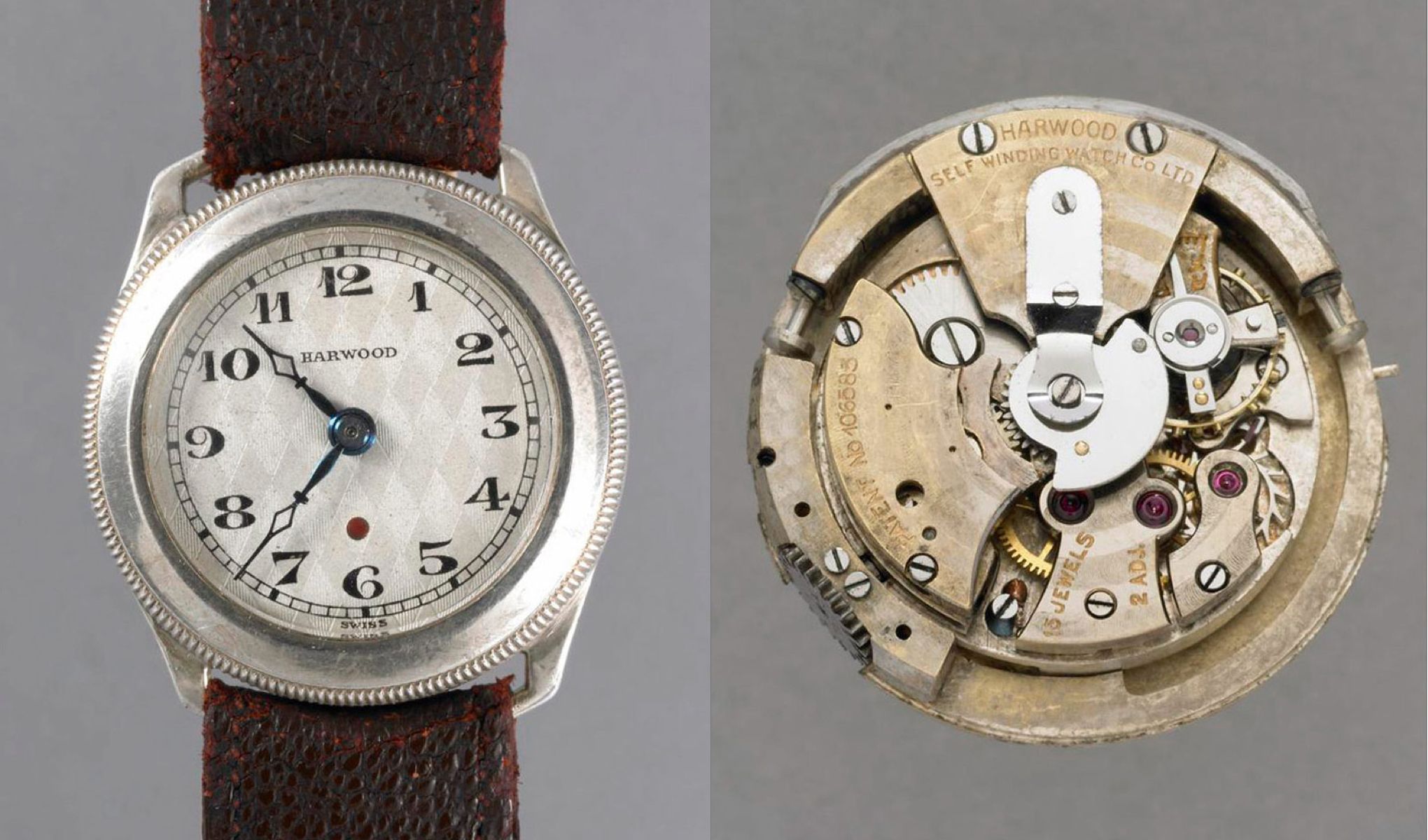STORIES
STORIES
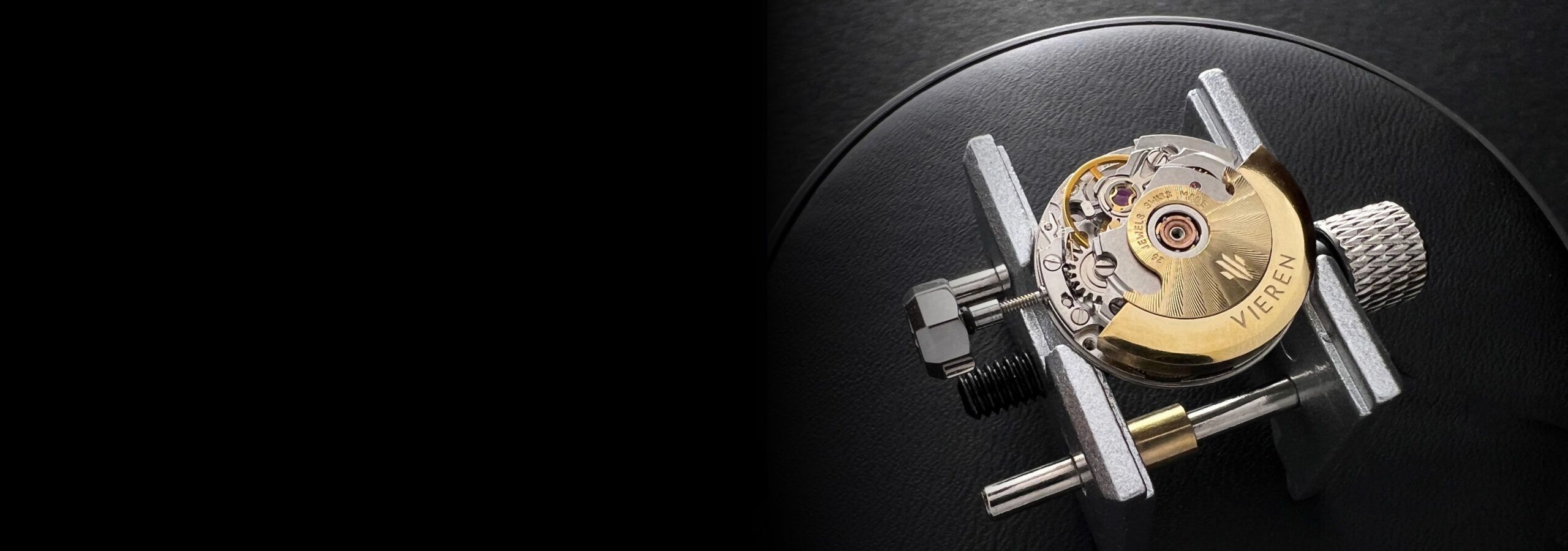
Quartz Watch vs. Automatic Watch - What's The Difference?
Understand the differences between the quartz and automatic watches, how to tell them apart, and get help deciding which one to choose in this guide.
January 2024
WHAT YOU’LL LEARN
WHAT YOU’LL LEARN
1. What Is A Quartz Watch?
1. What Is A Quartz Watch?
Quartz watches are powered by an electrical battery.
Quartz watches are powered by an electrical battery.
Watches are defined by the movement inside powering the watch. Similar to car engines, watch movements determine the functionality and quality of the timepiece. There are three types of watch movements: Mechanical, Automatic, and Quartz.
Quartz watches are the newest of the three movement types. Also known as a battery-operated watch, quartz watch movements keep accurate time with an electrical battery. These modern devices are super accurate, last for months, and much cheaper to make, offering a variety of styles at a range of price points. First introduced in 1969 by the Japanese watchmaker, the Seiko Quartz Astron was an innovative timepiece that almost caused the collapse of the entire Swiss watchmaking industry.
Quartz watches are the newest of the three movement types. Also known as a battery-operated watch, quartz watch movements keep accurate time with an electrical battery. These modern devices are super accurate, last for months, and much cheaper to make, offering a variety of styles at a range of price points. First introduced in 1969 by the Japanese watchmaker, the Seiko Quartz Astron was an innovative timepiece that almost caused the collapse of the entire Swiss watchmaking industry.
Watches are defined by the movement inside powering the watch. Similar to car engines, watch movements determine the functionality and quality of the timepiece. There are three types of watch movements: Mechanical, Automatic, and Quartz.
Quartz watches are the newest of the three movement types. Also known as a battery-operated watch, quartz watch movements keep accurate time with an electrical battery. These modern devices are super accurate, last for months, and much cheaper to make, offering a variety of styles at a range of price points. First introduced in 1969 by the Japanese watchmaker, the Seiko Quartz Astron was an innovative timepiece that almost caused the collapse of the entire Swiss watchmaking industry.
Quartz watches are the newest of the three movement types. Also known as a battery-operated watch, quartz watch movements keep accurate time with an electrical battery. These modern devices are super accurate, last for months, and much cheaper to make, offering a variety of styles at a range of price points. First introduced in 1969 by the Japanese watchmaker, the Seiko Quartz Astron was an innovative timepiece that almost caused the collapse of the entire Swiss watchmaking industry.
2. What Are Quartz Watch Movements?
2. What Are Quartz Watch Movements?
Quartz watch movements are powered by a quartz crystal and an electronic battery. The battery creates electrical impulses that vibrate an oscillator on the quartz crystal at precisely 32,768 times per second. There is an integrated circuit that detects the vibrations and uses a step rotor to turn a series of gears and seconds hand at time intervals.
Quartz watch movements are powered by a quartz crystal and an electronic battery. The battery creates electrical impulses that vibrate an oscillator on the quartz crystal at precisely 32,768 times per second. There is an integrated circuit that detects the vibrations and uses a step rotor to turn a series of gears and seconds hand at time intervals.
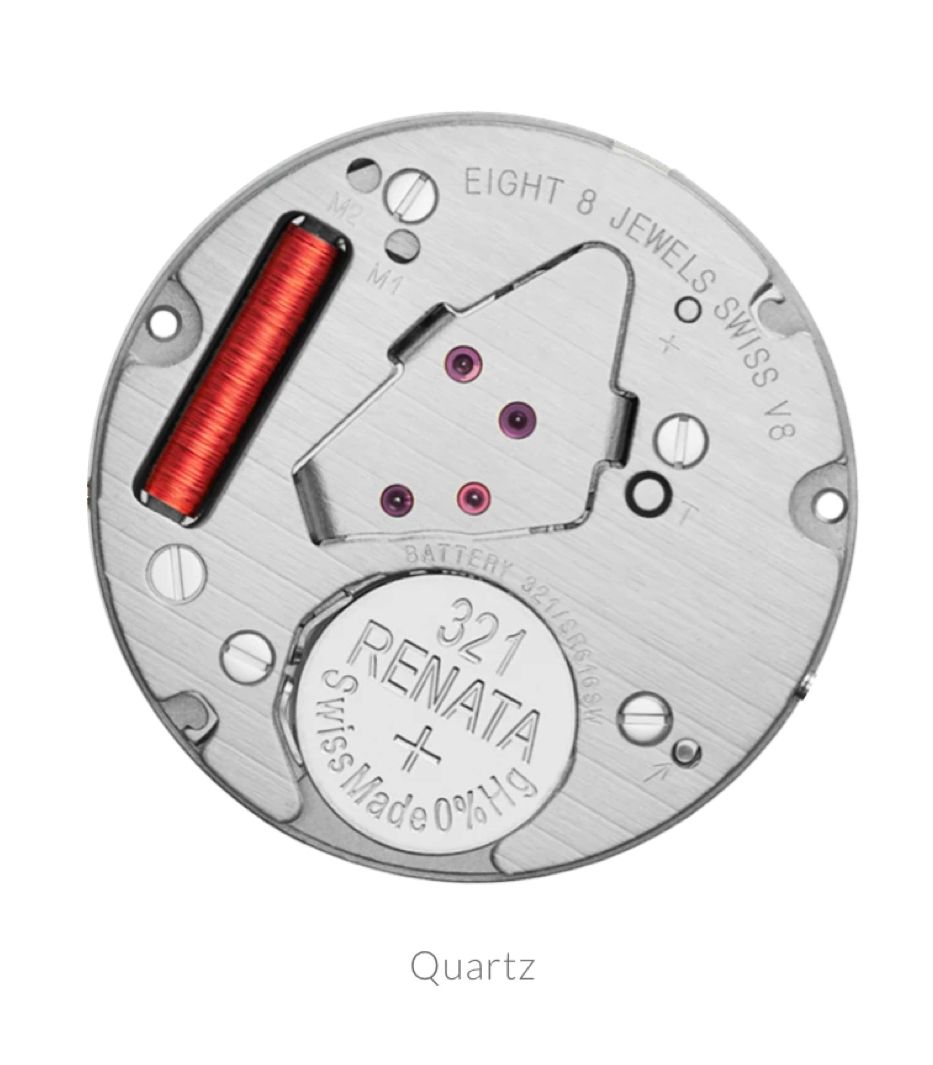

3. Top Picks For Quartz Watches
3. Top Picks For Quartz Watches
Grand Seiko SBGX261
It was Seiko and the Hattori family's quest for excellence in the pursuit of making the ideal watch that led to the birth of Grand Seiko. This modern quartz watch incorporates a number of innovative features compared to traditional quartz models. The beautiful mirror surface, which is free of distortion, and the case with its elaborate satin finish quietly emphasizes the presence of the watch. The size of the case was carefully calculated so that the watch would sit nicely on the wrist.
Grand Seiko SBGX261
It was Seiko and the Hattori family's quest for excellence in the pursuit of making the ideal watch that led to the birth of Grand Seiko. This modern quartz watch incorporates a number of innovative features compared to traditional quartz models. The beautiful mirror surface, which is free of distortion, and the case with its elaborate satin finish quietly emphasizes the presence of the watch. The size of the case was carefully calculated so that the watch would sit nicely on the wrist.
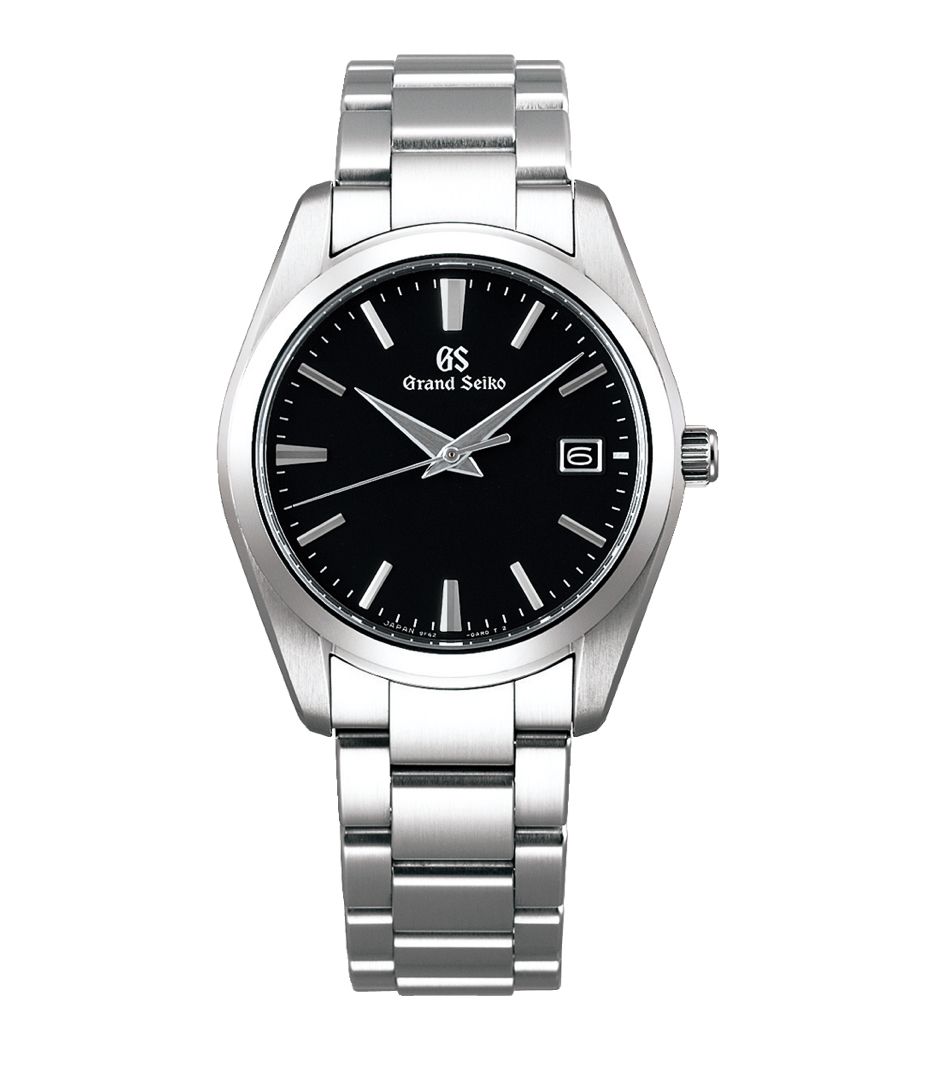
Model: Grand Seiko SBGX261
Case Size: 37 x 44.6 x 10mm
Movement: Quartz Calibre 9F62 with 100 metres water resistance
Price: $2,200 USD
Case Size: 37 x 44.6 x 10mm
Movement: Quartz Calibre 9F62 with 100 metres water resistance
Price: $2,200 USD

Model: Grand Seiko SBGX261
Case Size: 37 x 44.6 x 10mm
Movement: Quartz Calibre 9F62 with 100 metres water resistance
Price: $2,200 USD
Case Size: 37 x 44.6 x 10mm
Movement: Quartz Calibre 9F62 with 100 metres water resistance
Price: $2,200 USD
Swatch Twice Again
Introduced to the world in 1983 to combat the rise of Japanese digital watches, Swatch has now a household name among the young and the old. Their Twice Again watch reminds us that there’s a first time for everything and once isn’t enough. The minimalistic watch has a black biosourced strap and showcases day and date windows on its white dial. The watch also comes in a smaller size in its Once Again model.
Swatch Twice Again
Introduced to the world in 1983 to combat the rise of Japanese digital watches, Swatch has now a household name among the young and the old. Their Twice Again watch reminds us that there’s a first time for everything and once isn’t enough. The minimalistic watch has a black biosourced strap and showcases day and date windows on its white dial. The watch also comes in a smaller size in its Once Again model.

Model: Swatch Twice Again
Case Size: 41 x 41 x 9.85mm
Movement: Quartz Calibre with 30 metres water resistance
Price: $85 USD
Case Size: 41 x 41 x 9.85mm
Movement: Quartz Calibre with 30 metres water resistance
Price: $85 USD

Model: Swatch Twice Again
Case Size: 41 x 41 x 9.85mm
Movement: Quartz Calibre with 30 metres water resistance
Price: $85 USD
Case Size: 41 x 41 x 9.85mm
Movement: Quartz Calibre with 30 metres water resistance
Price: $85 USD
4. What Is An Automatic Watch?
4. What Is An Automatic Watch?
Automatic watches are powered with daily wear to tell time without a battery.
Automatic watches are powered with daily wear to tell time without a battery.
Automatic watches are among the most advanced of the three movement types. Also known as self-winding watches, automatic watches can keep accurate time with daily wear. They are a type of mechanical watch that features an additional rotor on the back of the movement to power the watch.
The first automatic watch was created in 1776 by Swiss horologist Abraham Louis Perrelet. It features a primitive rotor to power the pocket watch, but the technology only became popularized after WWII with the rise of the wristwatch. In the 1924, British watchmaker John Harwood patented the first self-winding wristwatch, after being inspired by children playing on a seesaw. The rotor design was improved, swinging back and forth 270° to extend the power reserve to around 12 hours. Over time, the self-winding watch movement has been refined in size and accuracy over generations of watchmaking.
The first automatic watch was created in 1776 by Swiss horologist Abraham Louis Perrelet. It features a primitive rotor to power the pocket watch, but the technology only became popularized after WWII with the rise of the wristwatch. In the 1924, British watchmaker John Harwood patented the first self-winding wristwatch, after being inspired by children playing on a seesaw. The rotor design was improved, swinging back and forth 270° to extend the power reserve to around 12 hours. Over time, the self-winding watch movement has been refined in size and accuracy over generations of watchmaking.
Automatic watches are among the most advanced of the three movement types. Also known as self-winding watches, automatic watches can keep accurate time with daily wear. They are a type of mechanical watch that features an additional rotor on the back of the movement to power the watch.
The first automatic watch was created in 1776 by Swiss horologist Abraham Louis Perrelet. It features a primitive rotor to power the pocket watch, but the technology only became popularized after WWII with the rise of the wristwatch. In the 1924, British watchmaker John Harwood patented the first self-winding wristwatch, after being inspired by children playing on a seesaw. The rotor design was improved, swinging back and forth 270° to extend the power reserve to around 12 hours. Over time, the self-winding watch movement has been refined in size and accuracy over generations of watchmaking.
The first automatic watch was created in 1776 by Swiss horologist Abraham Louis Perrelet. It features a primitive rotor to power the pocket watch, but the technology only became popularized after WWII with the rise of the wristwatch. In the 1924, British watchmaker John Harwood patented the first self-winding wristwatch, after being inspired by children playing on a seesaw. The rotor design was improved, swinging back and forth 270° to extend the power reserve to around 12 hours. Over time, the self-winding watch movement has been refined in size and accuracy over generations of watchmaking.
5. What Are Automatic Watch Movements?
5. What Are Automatic Watch Movements?
Automatic watch movements harness the energy from the motion of the wearer's wrist to power the watch. The rotor, a semi-circular weighted disc on the back of the movement, swings back and forth to wind the movement. (Learn How Automatic Watches Work)
When worn every day, an automatic watch can tell time without the need for manual winding. We recommend Swiss automatic watch movements, which are highly reliable and can be serviced over time to last decades.
When worn every day, an automatic watch can tell time without the need for manual winding. We recommend Swiss automatic watch movements, which are highly reliable and can be serviced over time to last decades.
Automatic watch movements harness the energy from the motion of the wearer's wrist to power the watch. The rotor, a semi-circular weighted disc on the back of the movement, swings back and forth to wind the movement. (Learn How Automatic Watches Work)
When worn every day, an automatic watch can tell time without the need for manual winding. We recommend Swiss automatic watch movements, which are highly reliable and can be serviced over time to last decades.
When worn every day, an automatic watch can tell time without the need for manual winding. We recommend Swiss automatic watch movements, which are highly reliable and can be serviced over time to last decades.
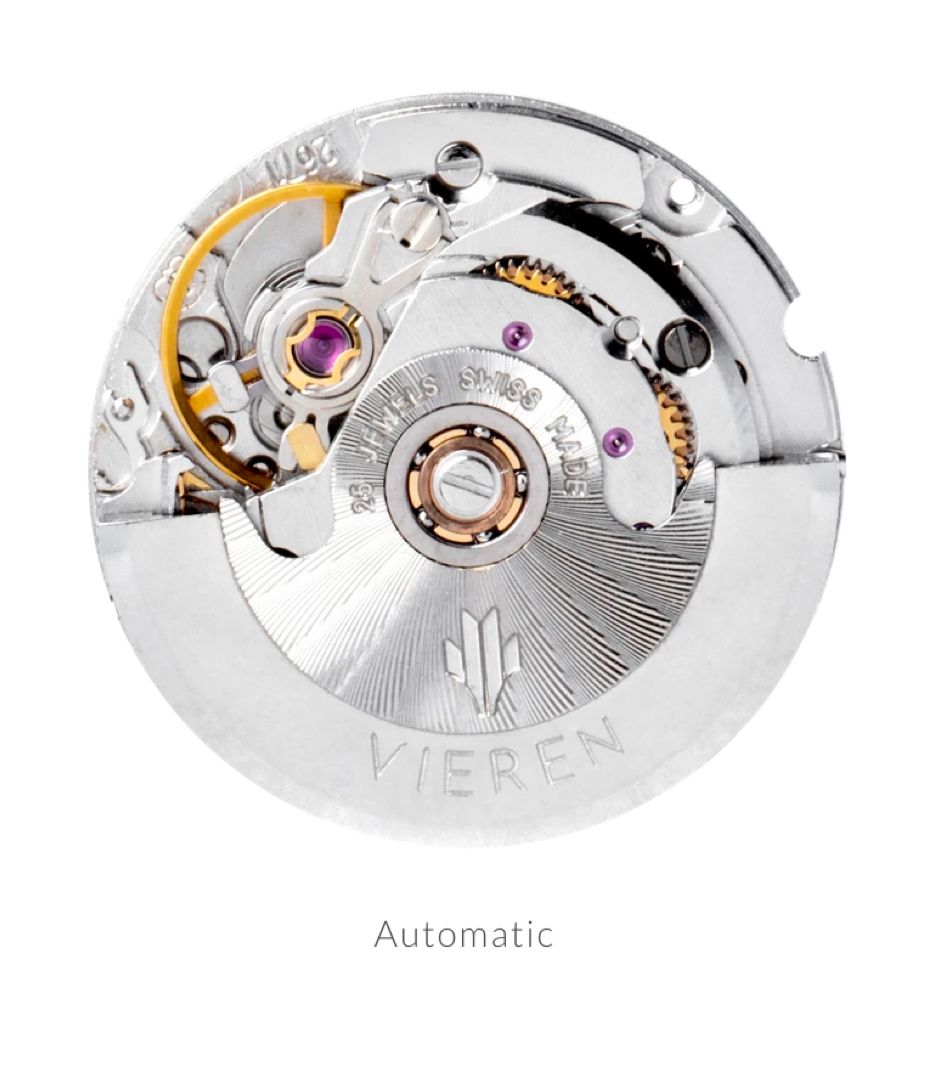

6. Top Picks For Automatic Watches
6. Top Picks For Automatic Watches
Tudor Black Bay Ceramic
First introduced in 2010, the Black Bay collection takes inspiration from Tudor’s heritage of dive watches of the 1950s and 60s. The white “Snowflake” hands and hour markers pop against the all-matte black ceramic case. The Tudor Bay Black Ceramic has successfully updated its vintage look into a contemporary monochromatic timepiece. The new automatic movement has an all-black finish as well, including the tungsten oscillating mass for the winding rotor.
Tudor Black Bay Ceramic
First introduced in 2010, the Black Bay collection takes inspiration from Tudor’s heritage of dive watches of the 1950s and 60s. The white “Snowflake” hands and hour markers pop against the all-matte black ceramic case. The Tudor Bay Black Ceramic has successfully updated its vintage look into a contemporary monochromatic timepiece. The new automatic movement has an all-black finish as well, including the tungsten oscillating mass for the winding rotor.
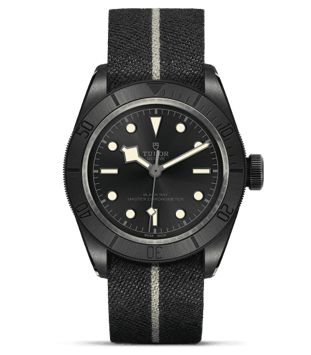
Model: Tudor Black Bay Ceramic
Case Size: 41 x 41 x 14.4mm
Movement: Automatic Winding Calibre MT5602-1U with 25 jewels and 70 hour power reserve
Price: $6,400
Case Size: 41 x 41 x 14.4mm
Movement: Automatic Winding Calibre MT5602-1U with 25 jewels and 70 hour power reserve
Price: $6,400

Model: Tudor Black Bay Ceramic
Case Size: 41 x 41 x 14.4mm
Movement: Automatic Winding Calibre MT5602-1U with 25 jewels and 70 hour power reserve
Price: $6,400
Case Size: 41 x 41 x 14.4mm
Movement: Automatic Winding Calibre MT5602-1U with 25 jewels and 70 hour power reserve
Price: $6,400
VIEREN Matte White
A new Swiss luxury watch microbrand, VIEREN is reinventing the modern luxury rectangular watch for today's generation. Their debut OG Collection was inspired by modernist architecture, and Matte White was the design that started it all. Created by award winning designer Sunny Fong and Certified Swiss Made in La-Chaux-de-Fonds, Switzerland, this versatile white dial watch is a minimalist’s dream. The ETA-2671 automatic watch movement and 18k gold rehaut ring will elevate your everyday style from day to night. Limited to 100 pieces.
VIEREN Matte White
A new Swiss luxury watch microbrand, VIEREN is reinventing the modern luxury rectangular watch for today's generation. Their debut OG Collection was inspired by modernist architecture, and Matte White was the design that started it all. Created by award winning designer Sunny Fong and Certified Swiss Made in La-Chaux-de-Fonds, Switzerland, this versatile white dial watch is a minimalist’s dream. The ETA-2671 automatic watch movement and 18k gold rehaut ring will elevate your everyday style from day to night. Limited to 100 pieces.
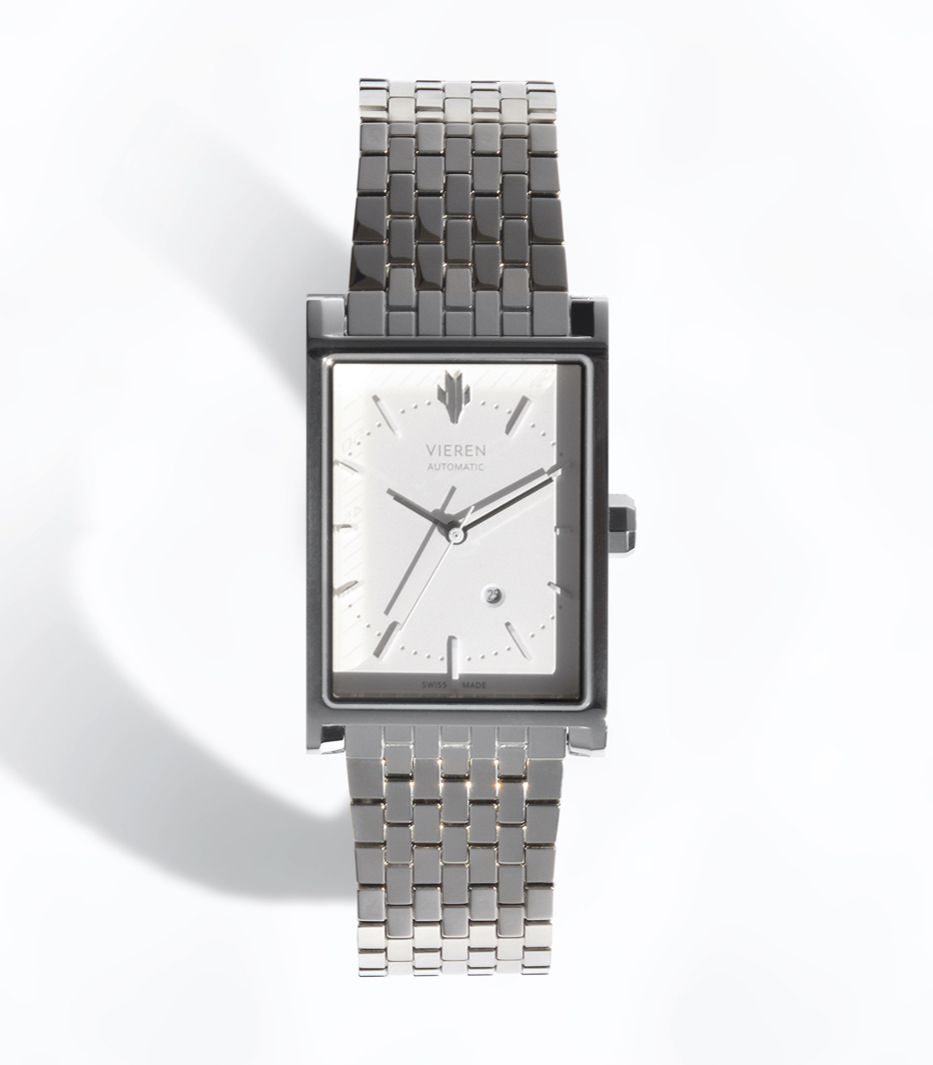
Model: VIEREN Matte White Watch
Case Size: 27 x 41.5 x 9.2mm
Movement: Self winding ETA-2671 automatic with 25 jewels and 44 hour power reserve
Price: $2,250
Case Size: 27 x 41.5 x 9.2mm
Movement: Self winding ETA-2671 automatic with 25 jewels and 44 hour power reserve
Price: $2,250

Model: VIEREN Matte White Watch
Case Size: 27 x 41.5 x 9.2mm
Movement: Self winding ETA-2671 automatic with 25 jewels and 44 hour power reserve
Price: $2,250
Case Size: 27 x 41.5 x 9.2mm
Movement: Self winding ETA-2671 automatic with 25 jewels and 44 hour power reserve
Price: $2,250
7. Quartz vs. Automatic Watches - How To Choose
7. Quartz vs. Automatic Watches - How To Choose
When selecting between quartz and automatic watches, it's essential to understand their fundamental differences. Quartz watches are powered by an electrical battery, offering unparalleled accuracy and reliability. These timepieces require minimal maintenance and are renowned for their affordability, making them a practical choice for everyday wear.
However, because quartz watches are more easier and cheaper to make, there are many mass-produced and fast fashion offerings that may not meet quality standards. They are known to break and damage more easily over time, and batteries will need to be replaced every 1-2 years.
On the other hand, automatic watches are powered by intricate self-winding movements powered by the wearer's motion. While automatic watches may not match the precision of quartz counterparts, they compensate with their superior craftsmanship and long-lasting wear. With regular servicing, automatic watches are known to tell time accurately for decades, offering the timeless appeal of mechanical movements.
Because of the expertise required to engineer automatic watch movements, they are harder to find and tend to be more expensive. An automatic movement is also generally larger than a quartz movement, making the timepiece thicker and heavier than a quartz watch. Ultimately, the choice between quartz and automatic watches depends on your unique style and priorities, whether it be accuracy, affordability, or the enduring charm of mechanical craftsmanship.
However, because quartz watches are more easier and cheaper to make, there are many mass-produced and fast fashion offerings that may not meet quality standards. They are known to break and damage more easily over time, and batteries will need to be replaced every 1-2 years.
On the other hand, automatic watches are powered by intricate self-winding movements powered by the wearer's motion. While automatic watches may not match the precision of quartz counterparts, they compensate with their superior craftsmanship and long-lasting wear. With regular servicing, automatic watches are known to tell time accurately for decades, offering the timeless appeal of mechanical movements.
Because of the expertise required to engineer automatic watch movements, they are harder to find and tend to be more expensive. An automatic movement is also generally larger than a quartz movement, making the timepiece thicker and heavier than a quartz watch. Ultimately, the choice between quartz and automatic watches depends on your unique style and priorities, whether it be accuracy, affordability, or the enduring charm of mechanical craftsmanship.
When selecting between quartz and automatic watches, it's essential to understand their fundamental differences. Quartz watches are powered by an electrical battery, offering unparalleled accuracy and reliability. These timepieces require minimal maintenance and are renowned for their affordability, making them a practical choice for everyday wear.
However, because quartz watches are more easier and cheaper to make, there are many mass-produced and fast fashion offerings that may not meet quality standards. They are known to break and damage more easily over time, and batteries will need to be replaced every 1-2 years.
On the other hand, automatic watches are powered by intricate self-winding movements powered by the wearer's motion. While automatic watches may not match the precision of quartz counterparts, they compensate with their superior craftsmanship and long-lasting wear. With regular servicing, automatic watches are known to tell time accurately for decades, offering the timeless appeal of mechanical movements.
Because of the expertise required to engineer automatic watch movements, they are harder to find and tend to be more expensive. An automatic movement is also generally larger than a quartz movement, making the timepiece thicker and heavier than a quartz watch. Ultimately, the choice between quartz and automatic watches depends on your unique style and priorities, whether it be accuracy, affordability, or the enduring charm of mechanical craftsmanship.
However, because quartz watches are more easier and cheaper to make, there are many mass-produced and fast fashion offerings that may not meet quality standards. They are known to break and damage more easily over time, and batteries will need to be replaced every 1-2 years.
On the other hand, automatic watches are powered by intricate self-winding movements powered by the wearer's motion. While automatic watches may not match the precision of quartz counterparts, they compensate with their superior craftsmanship and long-lasting wear. With regular servicing, automatic watches are known to tell time accurately for decades, offering the timeless appeal of mechanical movements.
Because of the expertise required to engineer automatic watch movements, they are harder to find and tend to be more expensive. An automatic movement is also generally larger than a quartz movement, making the timepiece thicker and heavier than a quartz watch. Ultimately, the choice between quartz and automatic watches depends on your unique style and priorities, whether it be accuracy, affordability, or the enduring charm of mechanical craftsmanship.


8. How To Tell Them Apart - Automatic or Quartz?
8. How To Tell Them Apart - Automatic or Quartz?
Look at the seconds hand. Automatic watches have seconds hands that turn smoothly, whereas quartz watches will move forward in a tick-tick-tick motion.
Look at the seconds hand. Automatic watches have seconds hands that turn smoothly, whereas quartz watches will move forward in a tick-tick-tick motion.
SUMMARY
When comparing quartz and automatic watches, the choice comes down to priorities and preferences. Quartz watches offer unmatched accuracy, affordability, and low maintenance, appealing to those valuing precision and practicality. Conversely, automatic watches embody the artistry and tradition of watchmaking with their self-winding movements, appealing to enthusiasts who appreciate heritage and craftsmanship. Ultimately, the decision comes down to your unique style and personality, and how you feel when you wear the watch on your wrist.
SUMMARY
When comparing quartz and automatic watches, the choice comes down to priorities and preferences. Quartz watches offer unmatched accuracy, affordability, and low maintenance, appealing to those valuing precision and practicality. Conversely, automatic watches embody the artistry and tradition of watchmaking with their self-winding movements, appealing to enthusiasts who appreciate heritage and craftsmanship. Ultimately, the decision comes down to your unique style and personality, and how you feel when you wear the watch on your wrist.

ABOUT THE AUTHOR
Jess Chow, Founder and CEO VIEREN
As a next-generation watch entrepreneur, Jess’ passion for horology led her to create VIEREN - the coveted new microbrand handcrafting modernist Swiss Made automatic watches to power your time.

ABOUT THE AUTHOR
Jess Chow, Founder and CEO VIEREN
As a next-generation watch entrepreneur, Jess’ passion for horology led her to create VIEREN - the coveted new microbrand handcrafting modernist Swiss Made automatic watches to power your time.
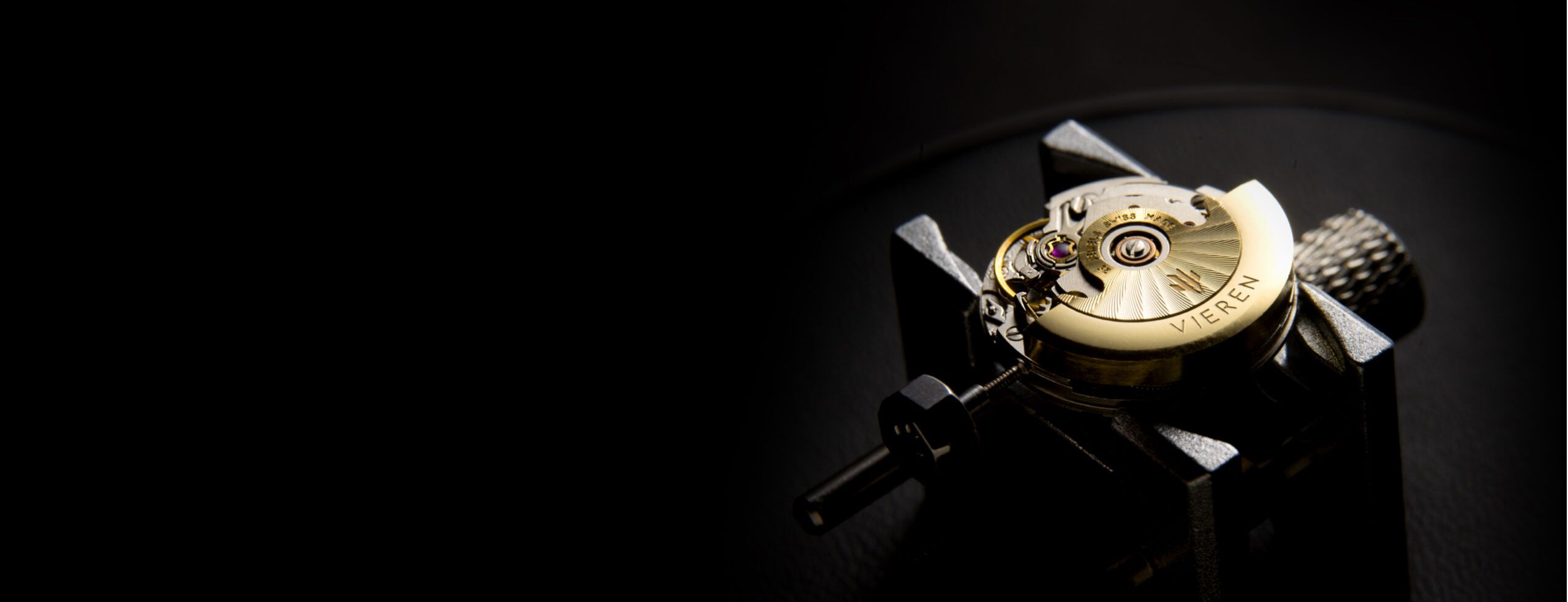
UNLOCK: THE AUTOMATIC WATCHES GUIDE
Gain exclusive access to our in-depth guide on automatic watches and take your knowledge to the next level.
.
SUGGESTED FOR YOU
SUGGESTED FOR YOU

